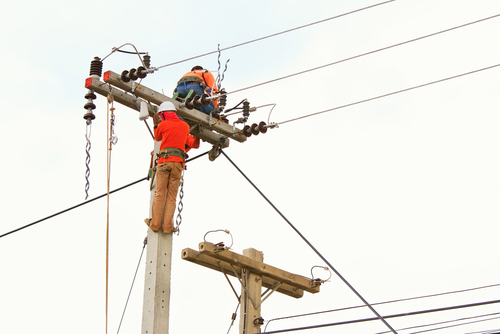How to Handle a Summer Power Outage
Summer storms can lead to inevitable power outages, which are never ideal when the temperatures are high. Just as you would in a winter power outage, proper precautions need to be taken in the event of a summer power outage. Here are our top tips for staying safe during a power outage during the summer.
Summer storms can lead to inevitable power outages, which are never ideal when the temperatures are high. Just as you would in a winter power outage, proper precautions need to be taken in the event of a summer power outage. Here are our top tips for staying safe during a power outage during the summer.
What You Should Do During a Summer Power Outage?
1. Load Up on Essentials
It is important to keep certain essential items in your homes at all times, in the event of a long power outage. We recommend keeping the following items in your home just in case! We think it is better to be safe than sorry. Also, you want to be sure to stock up on items that could last you up to 3 days without power.
- Water: buy gallon jugs or several cases of water bottles, and drink them! Hydration is key during a summer power outage!
- Batteries: for battery-operated fans, flashlights, lanterns, etc.
- Non-perishable foods: canned veggies may not be ideal, but they may become a lifesaver in extreme situations!
2. Keep the Fridge Closed
In an effort to keep your food as fresh as possible, try to avoid frequently opening the fridge door. Similarly, a full fridge or freezer keeps your foods cold longer. However, we suggest if you must eat the food in the fridge, try eating the foods that would spoil first!
3. Check on Your Neighbors
If the power in your neighborhood has been out for a day or two, try to check on your neighbors. This is especially important for your elderly neighbors, who may not have been prepared for the outage.
4. Block the Sun and Keep Doors Closed
Close the curtains or blinds in your rooms! This will help keep the rooms from getting too hot during the day. We also recommend you avoid opening windows and doors if possible. The temperature of your home is likely cooler than the temperature of the air outdoors, so try to keep that air in.
Preparing for a Summer Power Outage
Essential Supplies and Strategies
- Building an Emergency Kit:
- Flashlights: Ensure you have multiple flashlights with extra batteries. Consider LED flashlights for longer battery life.
- First Aid Kit: A well-stocked first aid kit including bandages, antiseptics, pain relievers, and any necessary prescription medications.
- Battery-powered Fans: To combat the heat, invest in battery-powered fans. Stock up on extra batteries to ensure continued use during prolonged outages.
- Keeping Cell Phones Charged:
- Backup Power Source: Acquire portable power banks or solar chargers to keep your cell phones and essential devices charged. Make sure these are fully charged and accessible before a power outage occurs.
How to Handle a Summer Power Outage Without Air Conditioners
- Use Battery-Powered Fans:
- As previously mentioned, having battery-powered fans can provide some relief. Make sure you have plenty of extra batteries or rechargeable options.
- Stay Hydrated:
- Drink plenty of water to help regulate your body temperature.
- Avoid beverages that can dehydrate you, such as alcohol and caffeine.
- Close Curtains and Blinds:
- Keep curtains and blinds closed during the day to block out direct sunlight.
- Use reflective or darkening shades to reduce heat gain.
- Create Cross-Ventilation:
- Open windows on opposite sides of your home to allow for natural air circulation.
- Place a fan in one window to pull cooler air in while another fan pushes out warm air on the opposite side.
- Use Wet Cloths and Ice Packs:
- Apply wet cloths or ice packs to pulse points such as wrists, neck, and temples to cool down.
- Take cool showers or baths if water is available.
- Sleep in Cooler Areas:
- Sleep on the lower levels of your home where it tends to be cooler.
- Use damp sheets or light cotton bedding to stay cooler at night.
- Limit Heat-Generating Activities:
- Avoid using appliances that generate heat, such as ovens, stoves, and dryers.
- Use a microwave or outdoor grill for cooking, if necessary.
- Seek Out Cooler Venues:
- If it’s safe to do so and power is available elsewhere, consider visiting public places like libraries, shopping malls, or community centers that have air conditioning.
Preparing for a Summer Power Outage
Summer storms can cause power outages, which are incredibly challenging in high temperatures. Just as you would during a winter power outage, proper precautions should be taken in the event of a summer power outage. Here are our top tips for staying safe during a summer power outage.
What You Should Do During a Summer Power Outage: Essential Supplies, Preparations and Strategies
It’s important to always keep essential items in your home in case of an extended power outage. We recommend preparing an emergency kit just in case—it’s better to be safe than sorry. Stock up on the following items. Make sure you have enough supplies to last you up to three days without power.
Essential Supply Kit Checklist
- Flashlights: Be proactive and ensure you have multiple flashlights with extra batteries. Consider LED flashlights for longer battery life.
- Batteries: For battery-operated fans, flashlights, lanterns, etc.
- Battery-powered Fans: To combat the heat during a power outage, invest in battery-powered fans.
- Backup Power Source: Acquire portable power banks or solar chargers to charge your cell phones and essential devices. Make sure these remain fully charged and accessible.
- Non-Perishable Food: Canned veggies and other non-perishables may become lifesavers in extreme situations.
- Water: Buy gallon jugs or several cases of water bottles. Hydration is critical during a summer power outage.
- First Aid Kit: A well-stocked first aid kit including bandages, antiseptics, pain relievers, and any necessary prescription medications.
Strategies To Stay Safe During A Summer Power Outage Without Air Conditioning
Use Battery-Powered Fans: Make sure you have plenty of extra batteries or rechargeable options readily available.
Stay Hydrated: Drink plenty of water to help regulate your body temperature. Avoid beverages that can dehydrate you, such as alcohol and caffeine.
Keep the refrigerator closed: It’s important to keep the food you already have in the refrigerator as fresh as possible. Avoid frequently opening the refrigerator door. A full fridge or freezer keeps your foods colder for longer. If you must eat the food in the fridge, try eating the items that would spoil first.
Close Curtains and Blinds: Close the curtains or blinds to help keep the rooms from getting too hot during the day. Use reflective or darkening shades to reduce heat gain.
Create Cross-Ventilation: Open windows on opposite sides of your home to allow for natural air circulation. Place a fan in one window to pull in cooler air while another pushes out warm air on the opposite side. If the indoor air is still cooler than the outside, consider keeping the windows closed.
Use Wet Cloths and Ice Packs to Cool Down: Apply wet cloths or ice packs to pulse points such as wrists, neck, and temples for instant relief. If water is available, take cool showers or baths.
Sleep in Cooler Areas: Sleep on the lower levels of your home, which tends to be cooler. Use damp sheets or light cotton bedding to stay cooler at night.
Limit Heat-Generating Activities: Avoid using appliances that generate heat, such as ovens, stoves, and dryers. If necessary, use a microwave or outdoor grill for cooking.
Seek Out Cooler Venues: If it’s safe to do so and power is available elsewhere, consider visiting public places with air conditioning, such as libraries, shopping malls, or community centers.
Check on Your Neighbors and Friends: If the power in your neighborhood has been out for a day or two, it’s a good idea to check on your neighbors. This is especially important for elderly neighbors who may not have been prepared for the outage. Your support and care can make a significant difference in their safety and well-being.
By following these tips, you can stay safe and relatively comfortable during a summer power outage. Remember, preparation is key to handling these situations effectively.
What our customers are saying
See why our power customers say we're the best electricity provider in Texas!
I was worried about getting electricity for my home through a prepaid company. I was calling around to see different rates then going through all the hassle of credit checks while dropping points each…
I have been with this company for several years and have been very happy since. Even when I moved, they made my usually stressful situation very easy and carefree. I recommend them to everyone that I…
I have enjoyed the service for 2 years now. In the beginning this service was planned to be temporary but with the service being so effective for me i decided to keep it for the long haul. I’m a happy customer.





